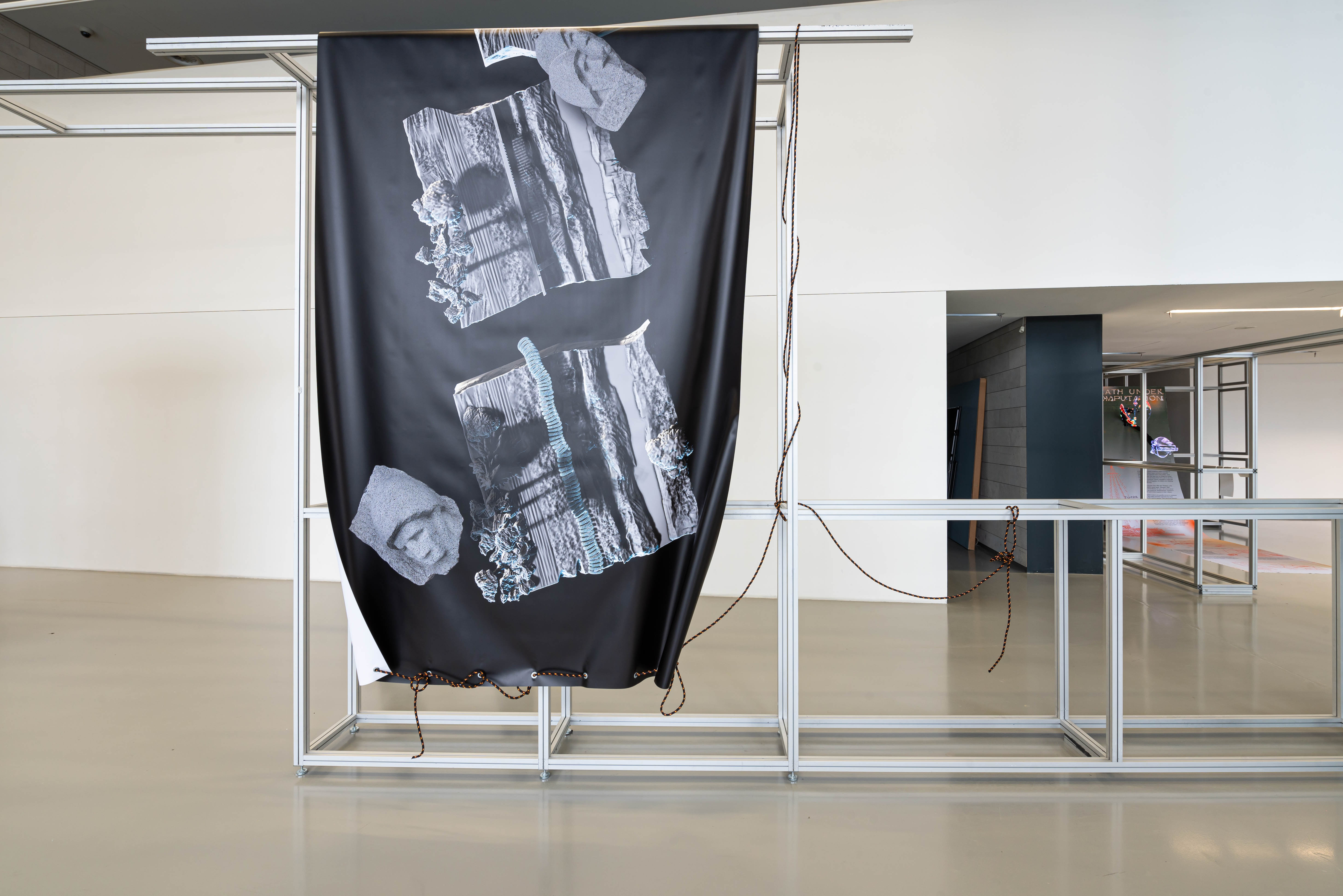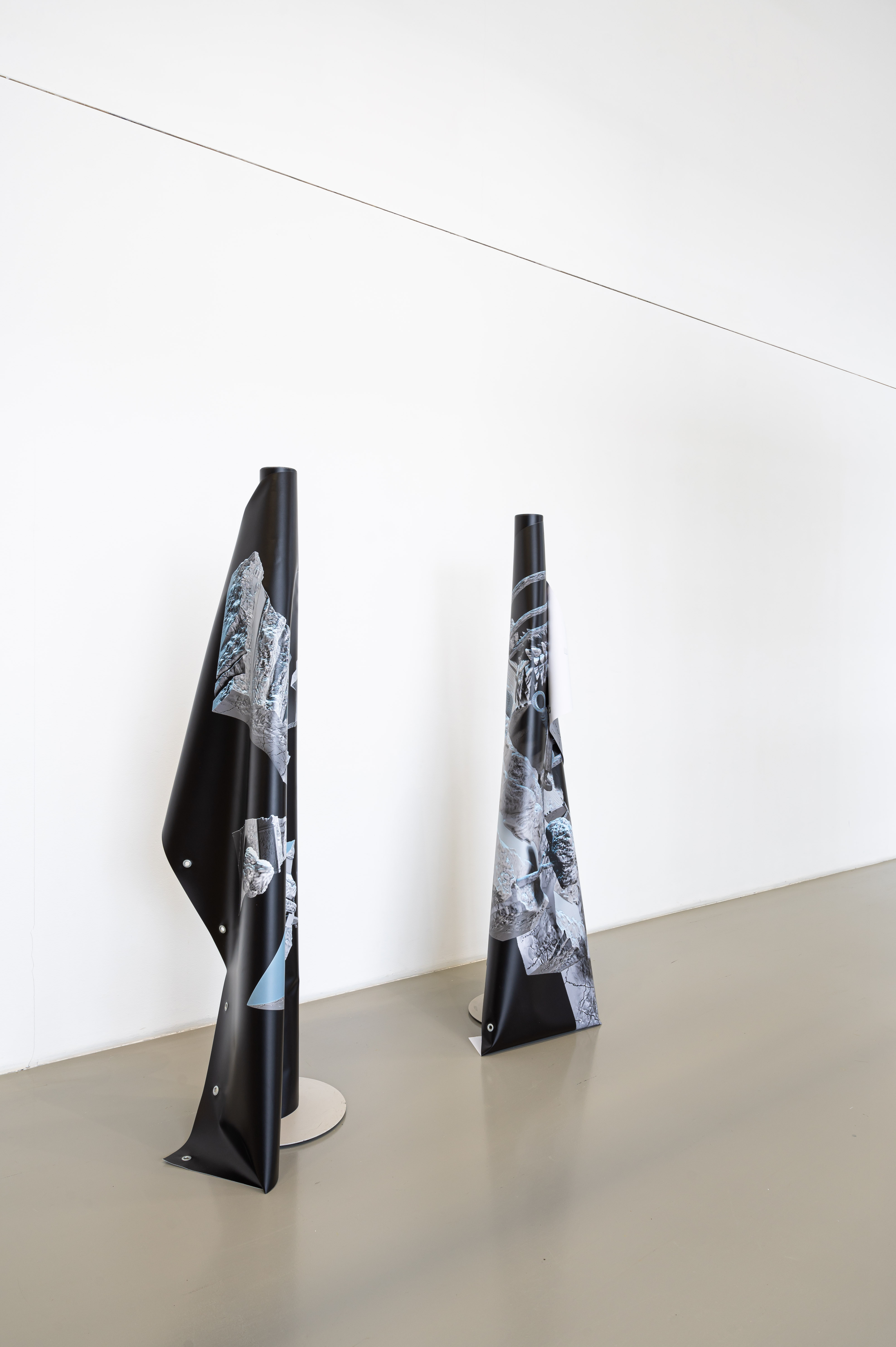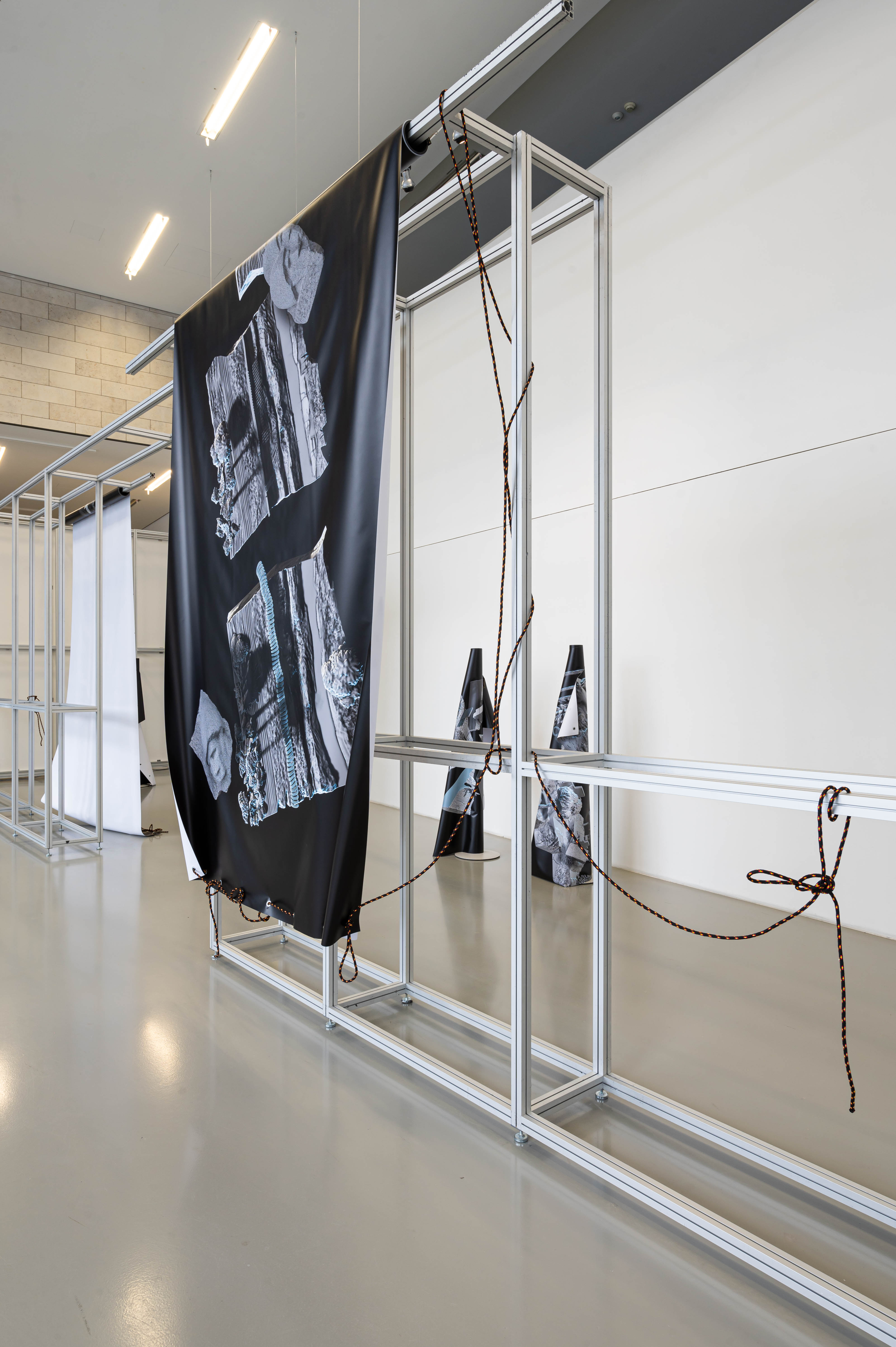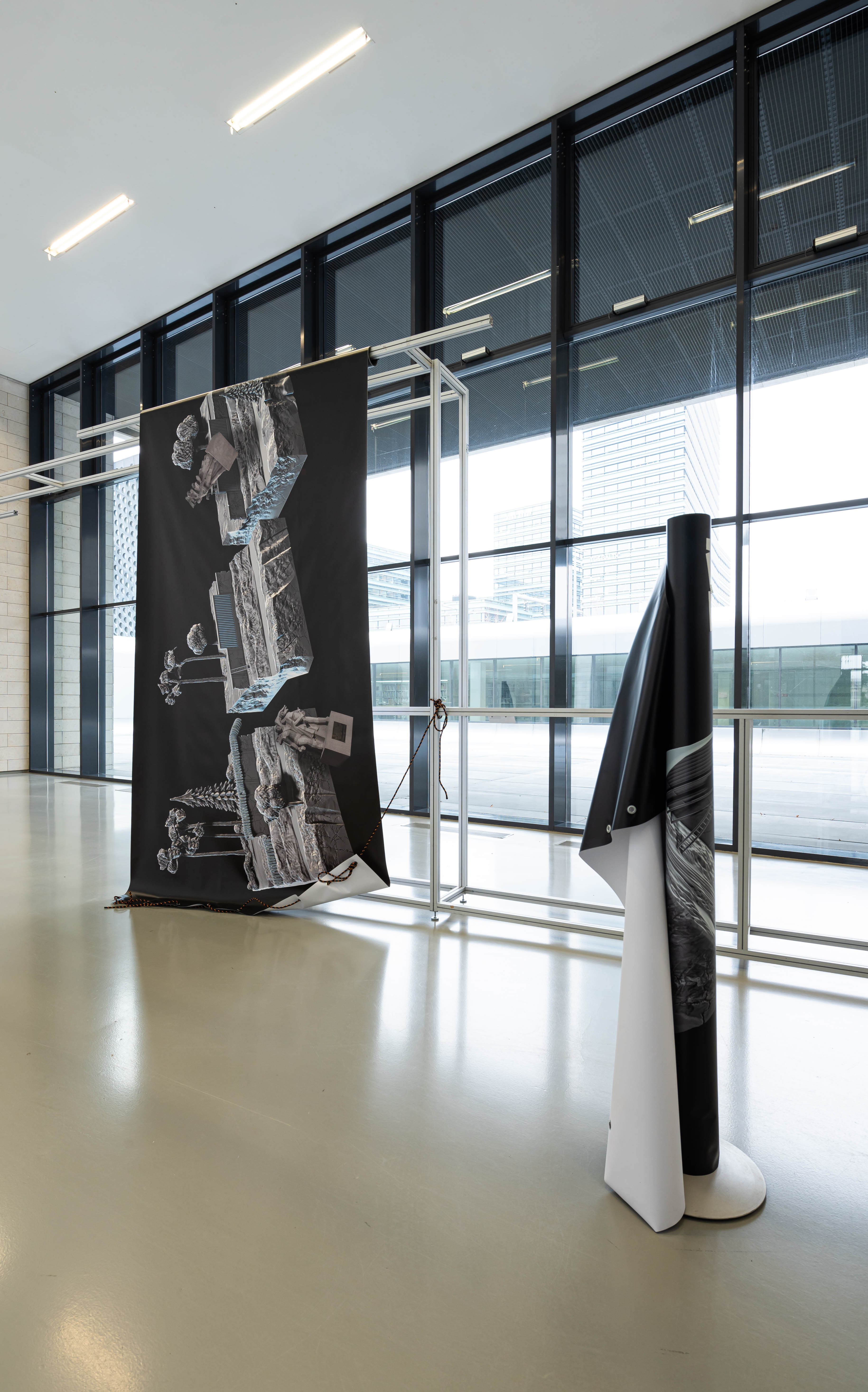


All buried is forgotten
Banners
In his artistic practice, Hramovich draws on the history of modernist art and architecture, the history of ideology and political movements and transformations of urban space. Trained as a professional graphic artist at the Belarusian State Academy of Arts, Hramovich's work alludes to an increased demand for realistic drawing skills in the 3D modeling and CGI market. Before 2020, one of the main employers in the IT sector was Wargaming, a company that developed the online game World of Tanks. Within a historical framework, the game recreates tank battles through an online multiplatier structure and is highly popular in Eastern Europe. This game is part of what Hramovich calls a spectral temporality, where various historical narratives are mixed with the imperialist perception of space, 3D modeling and elements of contemporary cyber warfare.
His installation Усе забыта што зямлей зарыта (All buried is forgotten), borrows its name from a Belarusian folk proverb. In it, he uses various fragments of 3D models (in collaboration with Andrii Akhtyrskyi) of the borderland landscapes between o and, Ukraine and Latvia. Over the last 3 years, the Belarusian border has become a place of crossing and historical 'rifts'. Political refugees from Belarus, refugees from other countries (instrumentalized by the Belarusian government) and Russian troops that attacked Ukraine from Belarus on February 24th all crossed the border. The digital, speculative and real maps and compasses follow the logic of disorientation, where the political frameworks of sovereignty, and agency are obsolete. The border has now become a kind of 'rampart: as Ukrainian forces have blown up roads and bridges, and EU countries have fortified their borders. The rolled scrolls refer to the dialectics of the visible and opaque in the ongoing cyberwar, and its imperial and post-colonial production of space.
Monuments from "Memory Alley" near Brest which was created by pro-regime activist and businesswoman Natalia Ilnitskaya: "The preserved plaque with inscriptions is a good luck, you can learn a lot from it. Basically, all the monuments brought from abroad - in a shattered state - had to be collected literally piece by piece. Natalia The idea came up of creating a memory alley in a village near Brest in 2017, when the Polish Sejm decided to demolish Soviet monuments. More than 400 were to be dismantled, located throughout Poland. Many had already been destroyed by that time, while the rest had been deliberately dismantled and transported away from human eyes”.
The work from group exhibition "If Disturbed, It Becomes Tangible". The Lithuanian National Museum of Art. Vilnius, Lithuania. 2023
Curators: Aleksei Borisionok, Antonina Stebur

Photos by National Gallery of Art. Vilnius, Lituania